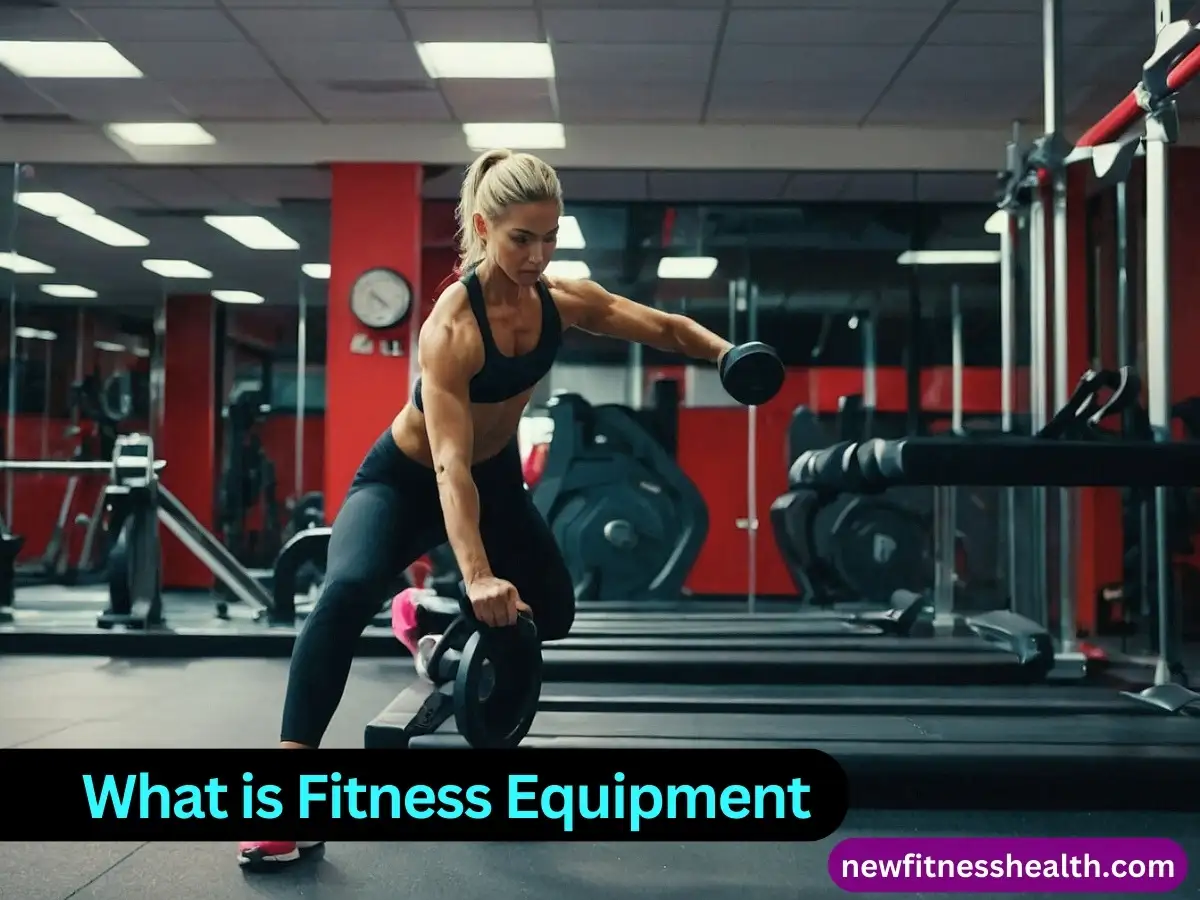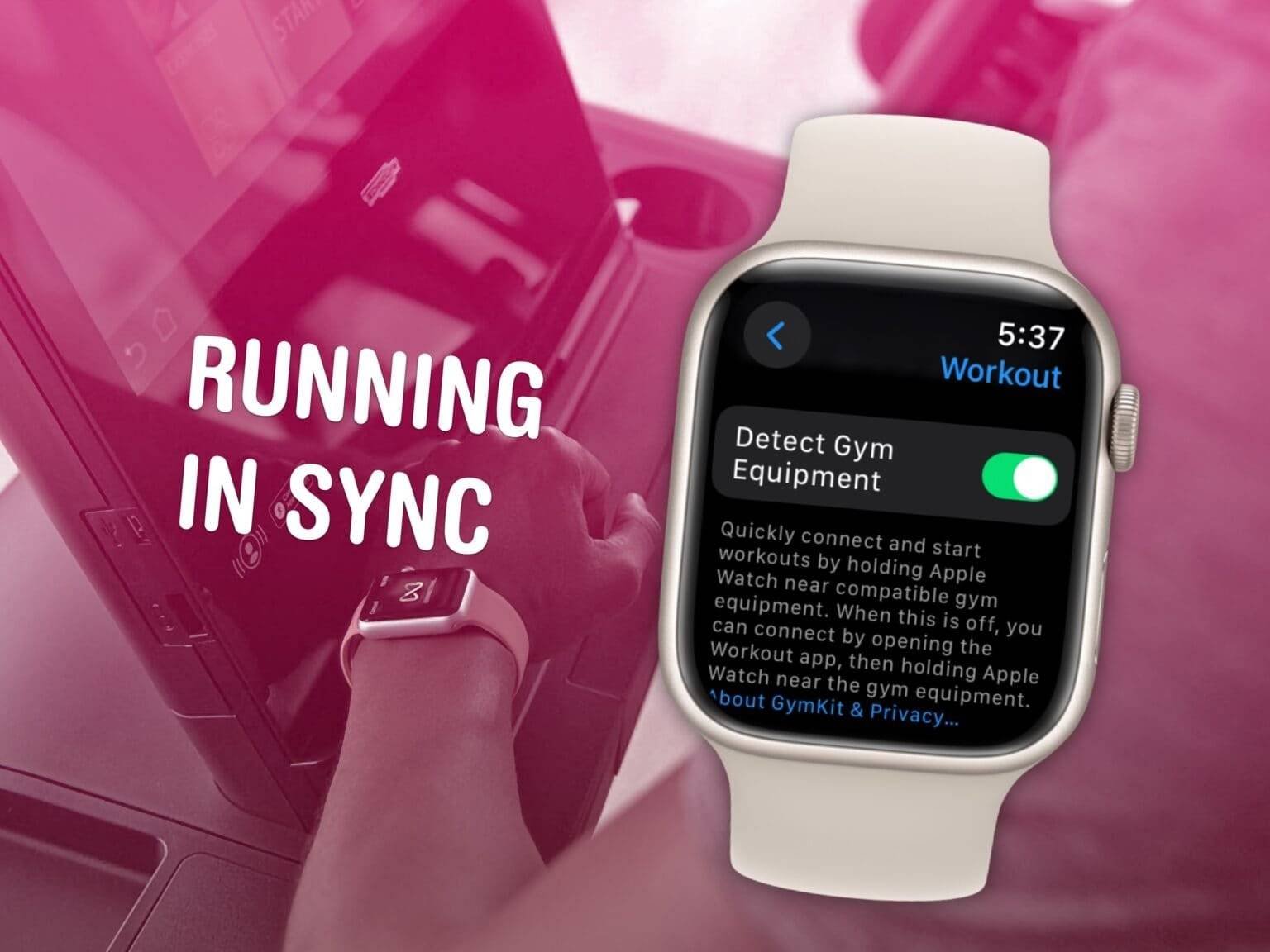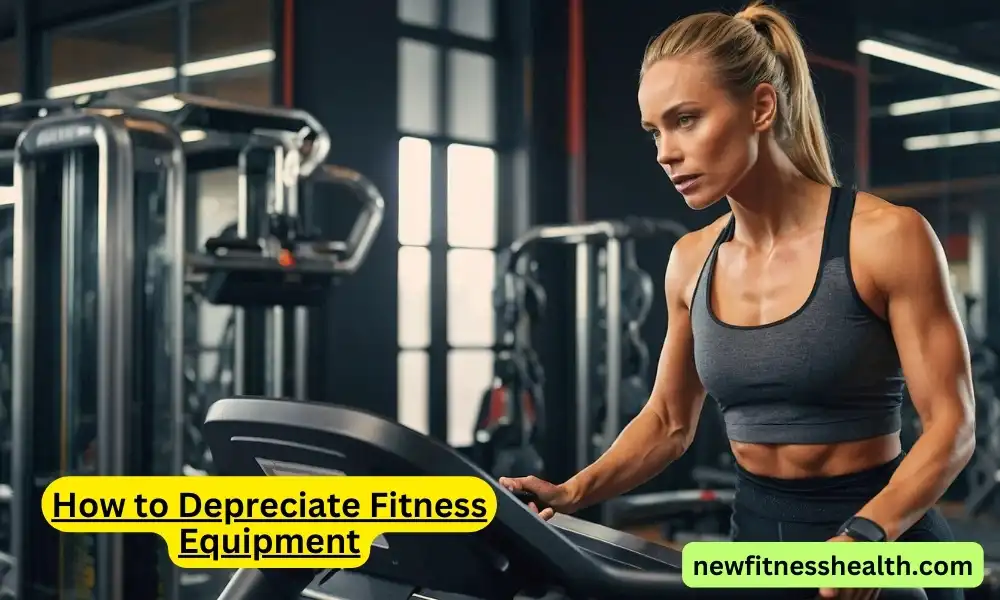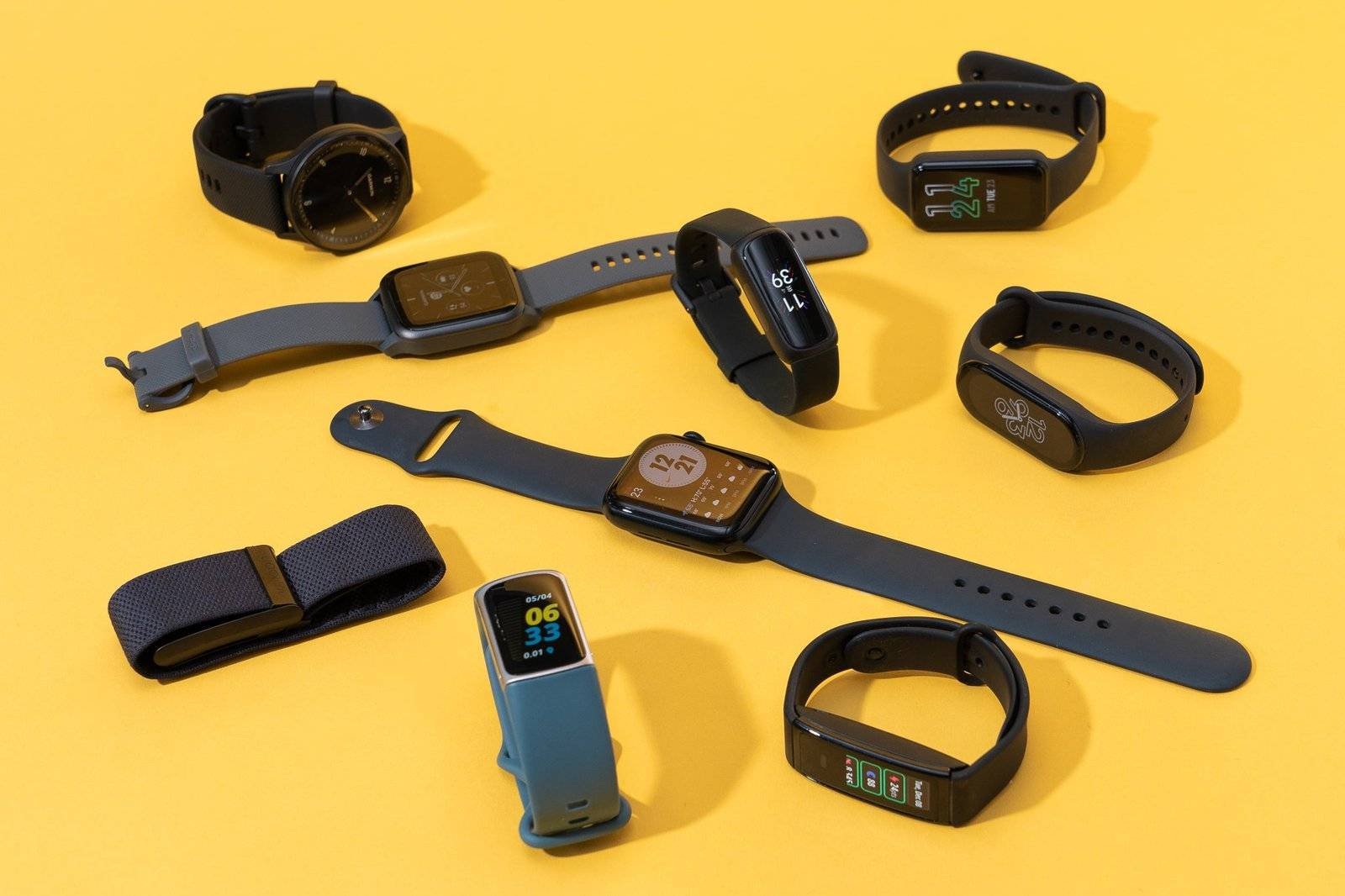What is Fitness Equipment: Fitness equipment includes machines, tools, and accessories used for physical exercise. They help improve strength, endurance, and overall fitness.
Fitness equipment plays a crucial role in achieving health and wellness goals. Ranging from simple tools like dumbbells and resistance bands to complex machines like treadmills and ellipticals, these devices cater to various workout needs. Fitness enthusiasts and beginners alike find value in using equipment that targets specific muscle groups, enhances cardiovascular health, and aids in weight management.
Home gyms and commercial fitness centers both rely on a diverse array of equipment to offer comprehensive workout routines. Investing in the right fitness equipment can lead to more effective workouts, better results, and a healthier lifestyle.
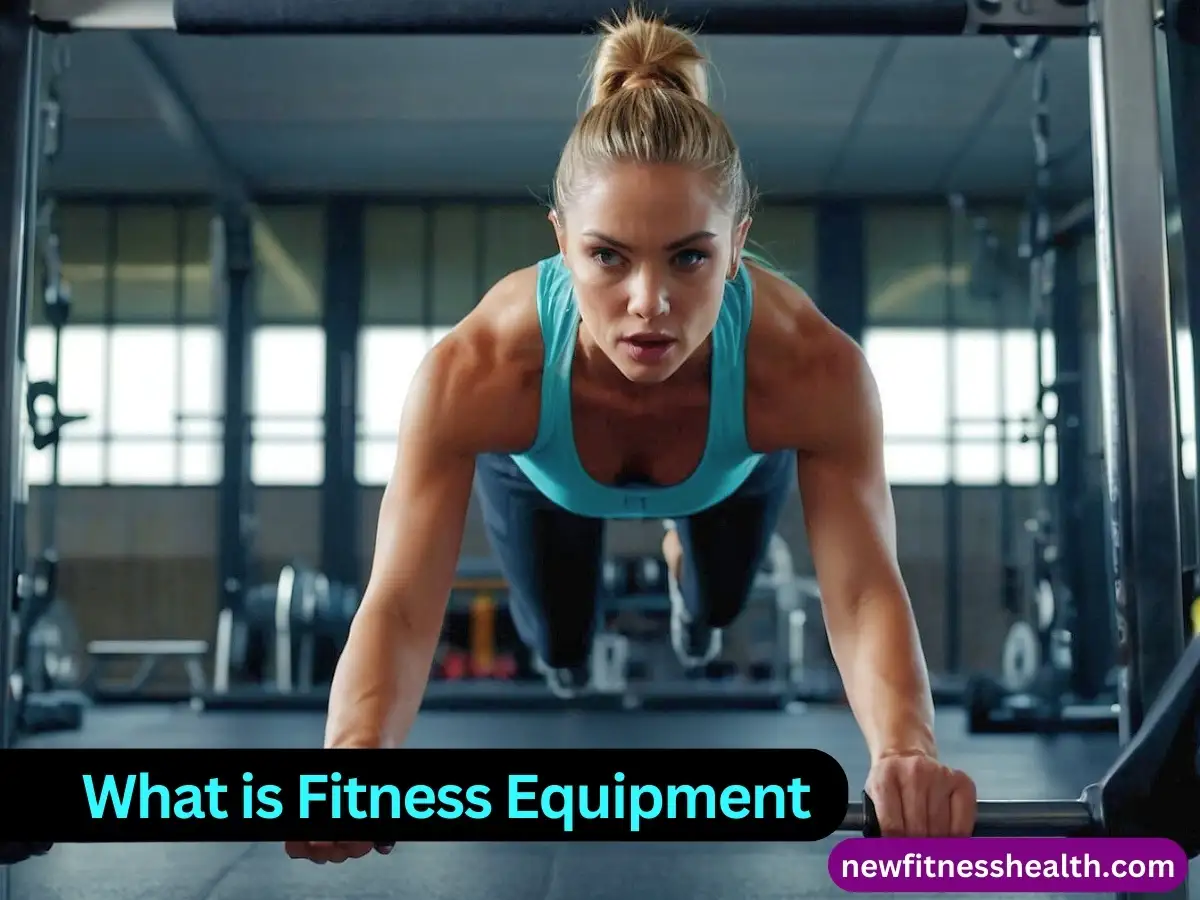
Introduction To Fitness Equipment
Fitness equipment plays a vital role in maintaining physical health. These tools help individuals perform exercises correctly and safely. Using the right equipment can enhance workout efficiency and effectiveness. This introduction will guide you through the basics of fitness equipment.
The Role Of Equipment In Physical Health
Fitness equipment supports various exercise routines. It ensures proper form and technique. This reduces the risk of injuries. Equipment like treadmills and bikes can boost cardiovascular health. Weights and resistance bands help build muscle strength. Each piece of equipment serves a unique purpose in fitness. Using the right tools can improve overall physical health.
Types Of Fitness Equipment Commonly Used
| Type | Purpose |
|---|---|
| Treadmills | Cardiovascular workouts, running, walking |
| Stationary Bikes | Low-impact cardio exercise |
| Dumbbells | Strength training, muscle building |
| Resistance Bands | Flexibility, strength training |
| Yoga Mats | Yoga, stretching exercises |
There are many types of fitness equipment. Each has a specific purpose. Here are some commonly used items:
- Treadmills: Great for running or walking indoors.
- Stationary Bikes: Ideal for low-impact cardio workouts.
- Dumbbells: Used for strength training and muscle building.
- Resistance Bands: Helpful for flexibility and strength exercises.
- Yoga Mats: Essential for yoga and stretching routines.
Using the right equipment can make your workouts more effective. Choose tools that match your fitness goals. This will help you stay motivated and safe during exercise.
Historical Evolution Of Exercise Machines
Exercise machines have come a long way. From simple tools to advanced machines, they have evolved significantly. This journey spans centuries and reflects human innovation and a quest for fitness.
From Ancient Gyms To Modern Fitness Centers
In ancient Greece, people trained in gyms called “gymnasiums.” These places had simple equipment like stone weights. Romans also valued physical fitness. They used wooden dumbbells and other primitive tools.
During the 19th century, fitness machines began to appear. Early gyms had pulley systems and rudimentary weightlifting equipment. The 20th century saw rapid development. Gyms started to feature more advanced machines.
Today, modern fitness centers boast high-tech machines. Treadmills, elliptical trainers, and resistance machines are common. These machines offer precise control and various settings for different fitness levels.
Key Inventions That Shaped The Fitness Industry
Some inventions played a crucial role in the fitness industry. Here are a few:
| Year | Invention | Description |
|---|---|---|
| 1880s | Medicine Ball | A weighted ball used for strength training. |
| 1960s | Treadmill | A machine for walking or running in place. |
| 1970s | Elliptical Trainer | A machine that simulates walking or running. |
| 1980s | Stationary Bike | A bike that stays in one place for cycling. |
These inventions revolutionized fitness. They made workouts more effective and accessible. The treadmill, for example, allows indoor running regardless of weather.
Elliptical trainers provide low-impact cardio exercise. They are suitable for people with joint issues. Stationary bikes offer a great cardiovascular workout without leaving home.
Home Gym Essentials
Creating a home gym can be a game-changer for your fitness journey. Having the right home gym essentials makes a significant difference. This section will guide you through setting up your personal fitness space and list the must-have items for an effective home workout.
Setting Up A Personal Fitness Space
First, choose a space for your home gym. It could be a spare room, garage, or even a corner in your living room. Make sure the area is well-ventilated and has enough lighting.
Next, clear the space of unnecessary items. Ensure you have enough room to move around freely. Consider adding mirrors to monitor your form during exercises.
Invest in flooring that can withstand heavy equipment. Rubber mats are a great option. They provide cushioning and reduce noise.
Must-have Items For A Home Workout
Having the right equipment is crucial for a balanced workout. Here is a list of must-have items for your home gym:
- Yoga Mat: Perfect for stretching, yoga, and floor exercises.
- Dumbbells: Essential for strength training. Start with a light and a heavy set.
- Resistance Bands: Great for adding resistance to bodyweight exercises.
- Stability Ball: Useful for core workouts and improving balance.
- Jump Rope: Excellent for cardio workouts and improving coordination.
- Kettlebell: Versatile for various strength and endurance exercises.
- Foam Roller: Ideal for muscle recovery and reducing soreness.
For those wanting more advanced equipment, consider these:
- Treadmill: Great for indoor running and walking.
- Exercise Bike: Effective for low-impact cardio workouts.
- Pull-up Bar: Excellent for upper body strength exercises.
- Weight Bench: Necessary for bench presses and other weight exercises.
Having these items ensures a well-rounded workout routine. Remember, the key to a successful home gym is consistency and dedication.
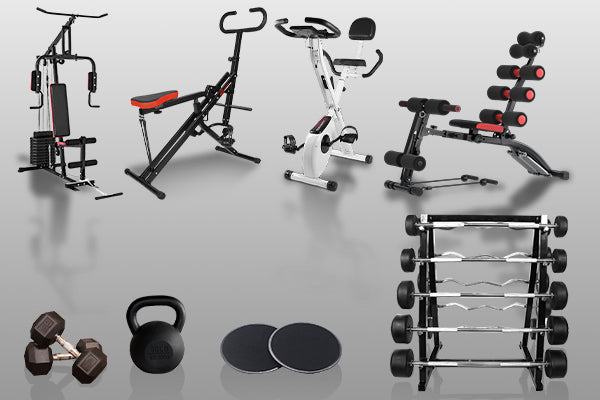
Credit: www.homefitnesscode.com
Commercial Gym Equipment Categories
Commercial gyms offer a wide range of fitness equipment to cater to diverse workout needs. From machines that get your heart pumping to those that build muscle strength, understanding the categories can help you make the most of your gym experience.
Cardiovascular Machines
Cardiovascular machines are designed to improve heart health and burn calories. They are essential for any balanced workout routine. Popular cardio machines include:
- Treadmills: Great for running or walking indoors.
- Ellipticals: Low-impact machines that simulate walking or running.
- Stationary Bikes: Perfect for a low-impact leg workout.
- Rowing Machines: Engage your whole body and improve endurance.
- Stair Climbers: Mimic the action of climbing stairs for a full-body workout.
Strength Training Apparatus
Strength training apparatus help in building muscle mass and increasing strength. These machines target specific muscle groups and provide resistance for a more intense workout. Common strength training equipment includes:
- Free Weights: Dumbbells, barbells, and kettlebells for versatile workouts.
- Weight Machines: Target specific muscles with guided movements.
- Resistance Bands: Portable and versatile for strength training.
- Cable Machines: Offer adjustable resistance for various exercises.
- Smith Machines: Provide stability for weight lifting exercises.
Understanding these categories can enhance your gym sessions. Choose the right equipment to meet your fitness goals.
Technological Advancements In Fitness Gear
Fitness equipment has evolved significantly. Modern gear is packed with technology. These advancements enhance workouts and provide valuable insights.
Smart Equipment And Tracking Capabilities
Smart equipment is revolutionizing the fitness industry. These machines come with built-in tracking features. They monitor your performance in real-time.
- Track heart rate
- Monitor calories burned
- Record workout duration
Most smart devices sync with mobile apps. This allows users to track progress over time. Wearable fitness trackers are also popular. They provide continuous health monitoring.
The Impact Of Ai And Vr On Exercise Experiences
Artificial Intelligence (AI) in fitness gear offers personalized workouts. AI analyzes your performance and suggests improvements. It acts as a virtual coach.
Virtual Reality (VR) transforms exercise into an immersive experience. VR creates engaging environments for workouts. Users can cycle through scenic routes or take part in virtual classes.
| Technology | Benefit |
|---|---|
| AI | Personalized training |
| VR | Immersive workouts |
Combining AI and VR offers a comprehensive fitness solution. This tech makes exercising fun and efficient. It encourages consistent workouts and better results.
Maintenance And Care For Exercise Equipment
Keeping your fitness equipment in top shape ensures a long lifespan. It also guarantees a safe workout environment. Let’s explore how routine upkeep and troubleshooting common issues can help.
Routine Upkeep To Extend Lifespan
Routine upkeep is essential for extending the life of your equipment. Follow these simple steps:
- Wipe down equipment after every use.
- Check and tighten bolts monthly.
- Lubricate moving parts every three months.
- Inspect cables and pulleys for wear.
- Keep the area around the equipment clean.
Here’s a handy table to summarize the routine upkeep schedule:
| Task | Frequency |
|---|---|
| Wipe down | After every use |
| Check bolts | Monthly |
| Lubricate parts | Every 3 months |
| Inspect cables | Monthly |
| Clean area | Weekly |
Troubleshooting Common Issues
Even with regular maintenance, issues can arise. Here are some common problems and their solutions:
- Squeaky Treadmill: Lubricate the belt and check for debris.
- Loose Bolts: Tighten all bolts regularly using the right tools.
- Worn-out Cables: Replace cables showing signs of fraying.
- Unresponsive Display: Check the power source and connections.
- Unstable Equipment: Ensure the equipment is on a flat surface.
By following these tips, your fitness equipment will remain in good condition. Happy exercising!
The Psychology Behind Equipment Design
Fitness equipment is more than metal and plastic. The design impacts how we feel and perform. Understanding the psychology behind equipment design can enhance our workout experience.
Ergonomics And User Experience
Ergonomics focuses on making equipment comfortable and safe. Good design reduces strain on the body. It also prevents injuries.
Ergonomic equipment fits the body’s natural movements. This makes workouts smoother and more effective. For example, adjustable seats and handles help users find the right fit.
Proper user experience ensures ease of use. Simple controls and clear displays make a difference. When users understand how to operate equipment, they feel more confident.
How Design Affects Workout Motivation
Design can inspire or discourage. Bright colors and sleek shapes can boost mood. Attractive equipment makes users excited to work out.
Interactive features keep users engaged. For instance, built-in screens for virtual classes or games. These elements make workouts more enjoyable.
Another key factor is feedback. Equipment that tracks progress motivates users. Seeing improvements keeps them coming back.
A well-designed environment also matters. Arranging equipment in an inviting space encourages regular use.
| Design Aspect | Impact on User |
|---|---|
| Ergonomics | Reduces strain and prevents injuries |
| Simple Controls | Increases confidence and ease of use |
| Bright Colors | Boosts mood and excitement |
| Interactive Features | Keeps users engaged and entertained |
| Progress Tracking | Motivates by showing improvements |

Credit: www.health.harvard.edu
Selecting The Right Equipment For Your Goals
Choosing the right fitness equipment can be a game-changer. Each piece of equipment serves a unique purpose. Understanding your fitness goals is the first step. This guide will help you match equipment to your objectives. It will also explain the importance of having a variety of tools.
Matching Equipment To Fitness Objectives
Not all fitness tools are the same. Some are better for strength training. Others help with cardio. Knowing your goals is key. Here are some common fitness goals and the equipment that best supports them:
| Fitness Goal | Recommended Equipment |
|---|---|
| Strength Building | Free weights, resistance bands, weight machines |
| Cardio Improvement | Treadmill, stationary bike, rowing machine |
| Flexibility and Balance | Yoga mats, balance balls, foam rollers |
| Weight Loss | Elliptical, jump rope, kettlebells |
Understanding The Importance Of Equipment Variety
Having a range of equipment keeps workouts interesting. It also helps target different muscle groups. This variety can prevent injuries. Here are some reasons why variety is important:
- Prevents Boredom: Different tools keep routines exciting.
- Targets Various Muscles: Each piece works different areas.
- Reduces Injury Risk: Diverse workouts balance stress on joints.
- Improves Overall Fitness: Combining cardio and strength boosts health.
Mixing up your workouts ensures all-around development. It keeps you motivated and engaged.
Future Trends In Fitness Equipment
The world of fitness equipment is ever-evolving. New trends are making workouts more exciting and efficient. Let’s delve into what’s on the horizon for fitness enthusiasts.
Sustainability In Equipment Manufacturing
Fitness equipment is getting a green makeover. Manufacturers are focusing on sustainable materials. Recycled metals and eco-friendly plastics are now in use. This reduces the environmental impact.
Energy-efficient machines are another trend. These machines consume less power. Some even generate electricity while in use. This makes your workout not just good for you but also for the planet.
Here’s a table summarizing some sustainable materials:
| Material | Benefit |
|---|---|
| Recycled Metals | Reduces waste |
| Eco-friendly Plastics | Less harmful to nature |
| Biodegradable Rubber | Breaks down naturally |
The Next Big Thing In Fitness Innovation
Technology is driving the next wave of fitness innovation. Smart equipment is gaining popularity. These machines track your progress in real-time. They sync with your mobile apps.
Virtual reality (VR) workouts are another exciting development. VR makes exercising more fun. Imagine jogging through exotic locations. Or, taking part in virtual fitness classes from home.
Wearable tech is also advancing. Smartwatches and fitness bands now offer more features. They track heart rate, calories burned, and even sleep patterns. This data helps in creating personalized fitness plans.
Here are some key innovations:
- Smart Treadmills
- VR Workout Programs
- Advanced Wearables
Conclusion
Understanding fitness equipment is key to achieving your health goals. From treadmills to free weights, each tool plays a role. Choose equipment that matches your needs and fitness level. Investing in quality gear can enhance your workout experience. Stay committed and enjoy the journey to better health and fitness.
Frequently Asked Questions about What is Fitness Equipment
What Is The Meaning Of Fitness Equipment?
- Fitness equipment includes machines and tools designed for physical exercise, improving strength, flexibility, and cardiovascular health. Common examples are treadmills, dumbbells, and exercise bikes.
What Are The Three Types Of Fitness Equipment?
- The three types of fitness equipment are cardiovascular machines, strength training equipment, and flexibility tools. Cardiovascular machines include treadmills and exercise bikes. Strength training equipment encompasses dumbbells and resistance bands. Flexibility tools involve yoga mats and foam rollers.
Which Piece Of Equipment Is An Example Of Fitness Equipment?
- A treadmill is an example of fitness equipment. It helps improve cardiovascular health and aids in weight loss.
What Is Home Exercise Equipment?
- Home exercise equipment includes items like treadmills, dumbbells, and resistance bands designed for fitness workouts at home. These tools help improve strength, cardio, and flexibility without needing a gym membership.
What Is Fitness Equipment?
- Fitness equipment includes tools like treadmills, dumbbells, and resistance bands used for physical exercise.

